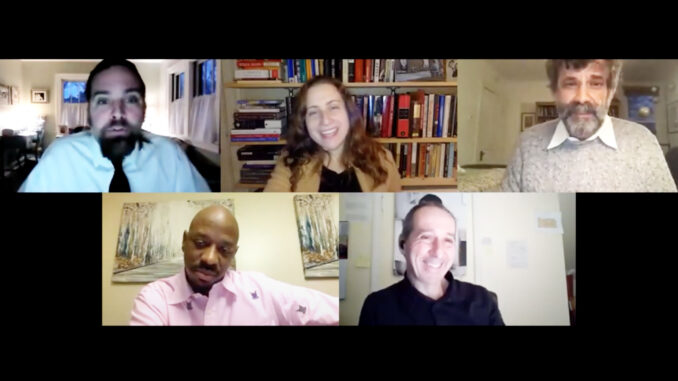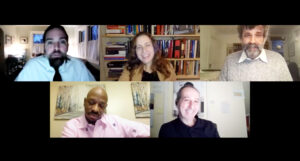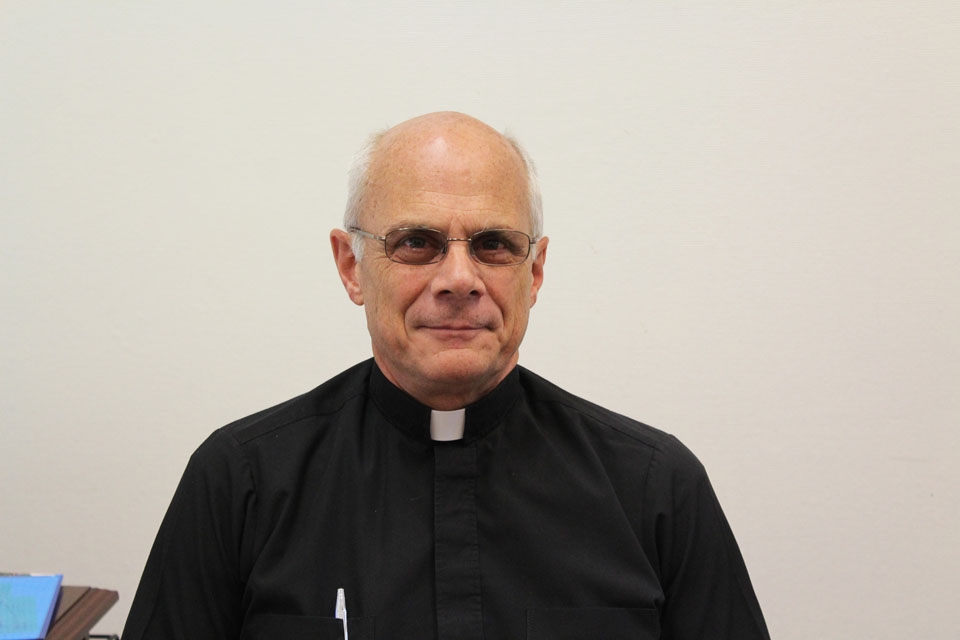
Katia Faroun and Carissa Haslam | The Duquesne Duke
01/21/2021

The violent attack on the Capitol on Jan. 6 left Americans wondering how such an incident could have occurred in the U.S. and what it means for the future of the country’s democracy. On Monday evening, local activists, scholars and concerned citizens were given the opportunity to answer these questions during a Duquesne-sponsored webinar over Zoom.
The event, titled “Capitol Crimes: Protests, Policing and the Future of American Democracy,” opened discussion about the events contributing to the violent mob and the systems that allowed for the execution of a successful attack on what was previously considered one of the country’s most secure and protected buildings.
The webinar was moderated by Duquesne psychology professor Daniel Burston, and panelists included Duquesne sociology professor Norman Conti, Elsinore Bennu Think Tank members Taili Thompson and Thomas Farrell and the Holocaust Center of Pittsburgh CEO Lauren Bairnsfather.
Panelists were first presented with a series of questions regarding the forces that contributed to the insurrection, the repercussions of the event and what steps can be taken to prevent further acts of domestic terrorism.
The event, occuring on Martin Luther King Jr. Day, began with a video honoring King’s legacy. Throughout the evening, the panelists considered how race contributed to the police response during the events of Jan. 6. Discussion centered on the differences between law enforcement’s response to the white Capitol rioters and the many Black Americans involved in Black Lives Matter protests over the summer.
Conti, a former officer who studies the sociology of policing, noted the level of threat perceived by officers was seemingly much lower, despite the magnitude of the crowd and the presence of weapons. He blamed this response on a criminal justice system that misdirects its attention towardslow-income and minority individuals, naming them as the threats, rather than individuals in power.
“We live in a nation where the purpose of our criminal justice system is to get the majority of the population looking at the poor — being afraid of the poor, seeing the poor as a threat and a source of harm, rather than looking at where the greater harms come from people with more power.”
As a Black man and returning citizen, Thompson affirmed this discrepancy, stating that had the rioters been of a different race, the results would have been much more violent.
“If that was a group of us storming the Capitol … a lot of people would’ve felt like their lives would’ve been in danger and we would’ve been gunned down on the steps,” Thompson said.
A statistic shared by Farrell reaffirmed Thompson’s concerns, in which the Armed Conflict Location and Event Data Project found that police were twice as likely to break up Black Lives Matter protests than Stop the Steal protests in 2020.
The panelists also considered the participation of white supremacists and other extremist groups — including conspiracy organizations such as Qanon — during the riot. Bairnsfather argued that social media gives extremists a platform to spread their views, and that isolation due to the pandemic only encouraged the online presence of extremism.
The Holocaust Center of Pittsburgh, which co-sponsored the event, is a nonpartisan organization, but sees a connection between anti-Semitism and the hate-filled ideologies that were expressed during the riot.
“Anti-Semitism is the core of white nationalism,” Bairnsfather said. “… Racism, anti-Semitism, xenophobia, et cetera — all these forms of hate are linked inextricably.”
In considering the forces that led to the violence, Farrell discussed the shared sense of loss experienced by antisemites, white supremcisists and other extremists. He noted that the sense of loss led to feelings of resentment, which were encouraged throughout the Trump presidency.
“President Trump, in many ways, is responsible for what happened on Jan. 6,” Farrell said. “He stoked this feeling of white resentment and loss of white privilege.”
Regarding steps that should be taken in response to the Capitol attack, the panelists echoed statements about the importance of engaging in conversations with people of different beliefs. They encouraged individuals to exit the echo chamber and be open to holding difficult conversations.
The discussion also focused on the need to revisit American Reconstruction and fulfill the promise of freedom for Black Americans that was broken by President Abraham Lincoln’s assassination. Panelists additionally expressed the reassurance they find in younger generations, noting the ongoing importance of education and the need for continued reform in American schools.
Despite widespread concern surrounding the attack on the Capitol, panelists shared their hope for the future of the nation and the prosperity of core American values.
“We can’t surrender our commitment to factual truth, to historical truth and especially our commitment to quality racial justice and human rights,” Farrell said.




